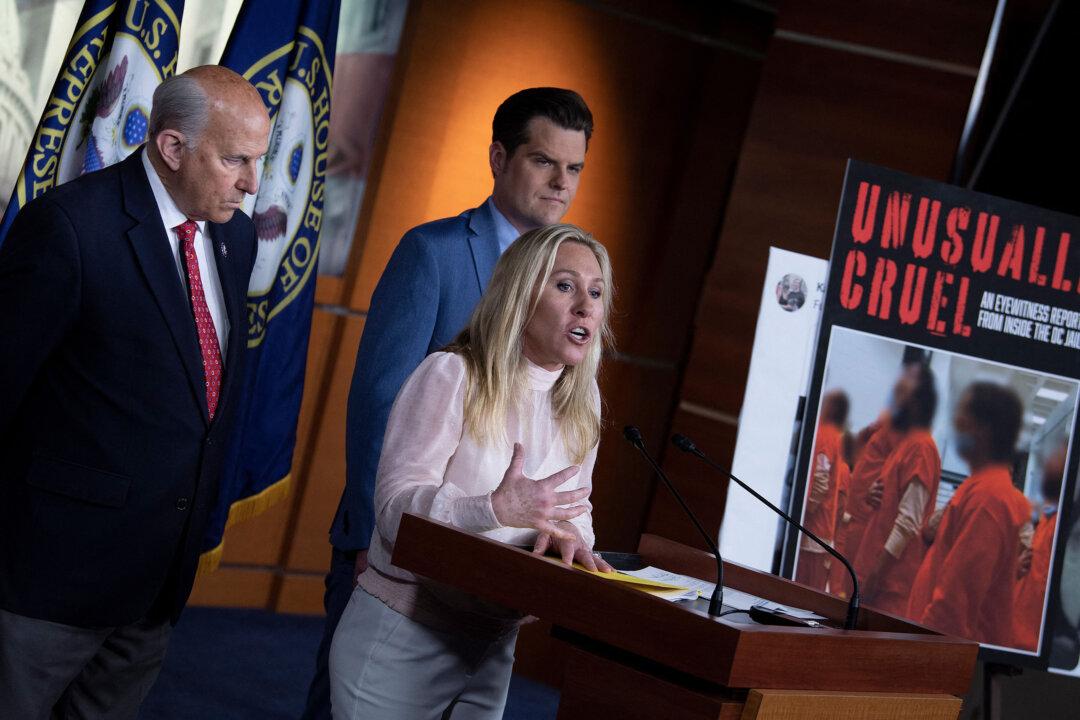During a field hearing on the Jan. 6 Capitol breach, a contingent of House Republicans weighed using the power of the purse to respond to alleged civil rights violations of Jan. 6 prisoners and defendants.
The hearing, hosted in the Capitol Visitor Center and open to the public, focused on the investigations, prosecutions, and targeting of individuals in the aftermath of January 6th, 2021. It was led by Rep. Matt Gaetz (R-Fla.), who was joined by Reps. Marjorie Taylor Greene (R-Ga.), Lauren Boebert (R-Colo.), Troy Nehls (R-Texas), Ralph Norman (R-S.C.), and Paul Gosar (R-Ariz.).





